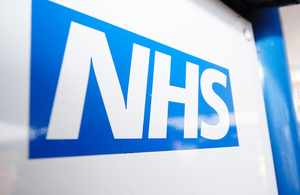Clampdown on staffing agencies charging NHS extortionate rates
Health Secretary Jeremy Hunt orders clampdown as part of tough new financial controls to cut down on waste in the NHS.

Tackling staffing agencies is part of a package of measures that will help to cut costs while improving frontline care. This action will help the NHS bring down spiralling agency staff bills, which cost the NHS £3.3 billion last year. This was more than the cost of all that year’s 22 million A&E admissions combined. Other controls include limiting the use of expensive management consultants.
The NHS is paying agencies up to £3,500 per shift for doctors, and the total bill for management consultants was more than £600 million last year.
New rules will:
- set a maximum hourly rate for agency doctors and nurses
- ban the use of agencies that are not on approved frameworks
- put a cap on total agency staff spending for each NHS trust in financial difficult
- require approval for any consultancy contracts over £50,000
The agency staff cap will firstly apply to nursing staff but will be extended to other clinical, medical and management and administrative staff. Capped rates will be reduced from the initial set level over time.
Health Secretary Jeremy Hunt said:
The path to safer, more compassionate care is the same as the path to lower costs. Simon Stevens said the NHS needed an extra £8 billion by 2020 and the government has invested that. Now the NHS must deliver its side of the bargain for patients by eliminating waste, helped by the controls on spending we’re putting in place.
Expensive staffing agencies are quite simply ripping off the NHS. It’s outrageous that taxpayers are being taken for a ride by companies charging up to £3,500 a shift for a doctor. The NHS is bigger than all of these companies, so we’ll use that bargaining power to drive down rates and beat them at their own game.
Agencies
Use of agency staff has risen from £1.8 billion to £3.3 billion in 3 years to help correct historic understaffing on wards. The government wants to see hospitals employing more permanent staff - there is clinical evidence this improves patient care.
Management consultants
Hospitals are increasingly hiring management consultants by default instead of looking at the skills they have within the hospital. An immediate cap of £50,000 will be applied to all management consultancy contracts and Trusts that need to break it for clinical reasons will have to get permission from their regulator, Monitor or the Trust Development Authority to do so.
Procurement
Hospitals currently negotiate prices for supplies individually and as a result cannot always secure the best prices for products. The NHS will collectively negotiate with suppliers using economies of scale to drive a harder bargain. For example, hospitals could save up to 38% on sterile surgical gloves by switching suppliers.
The savings will go alongside a £2 billion budget increase for the NHS this year, set out by the Chancellor in the Autumn Statement, and a further £8 billion increase by 2020, which was requested in the NHS’s own long term plan. That plan - the ‘Five-Year Forward View’ - said that the NHS could find £22 billion of efficiencies by 2020.